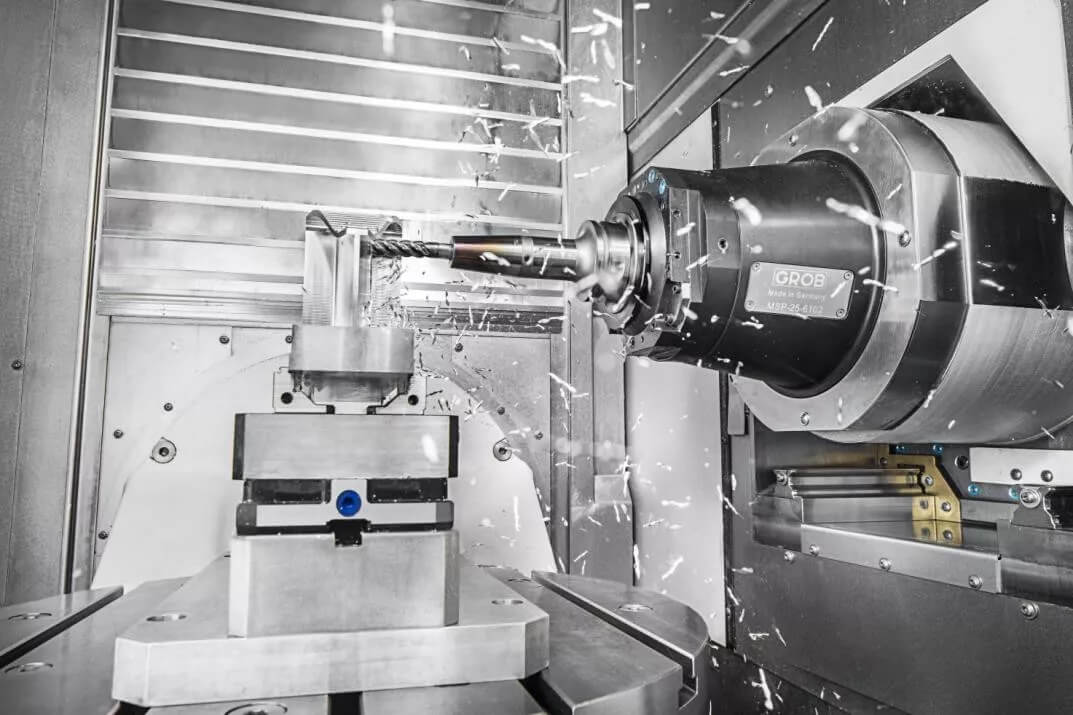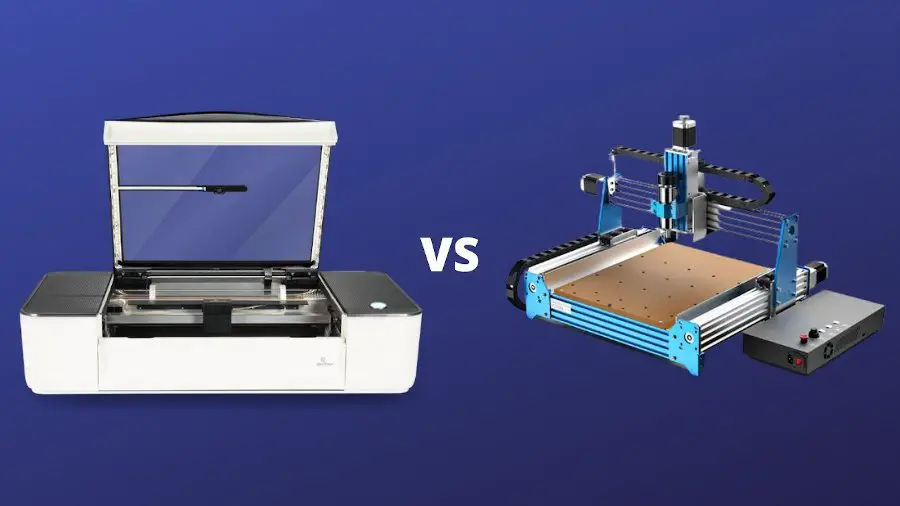Table of Contents
CNC machine tools have become an integral part of various manufacturing industries, from aerospace to automotive. But have you ever wondered how these machines are manufactured themselves?
The process of manufacturing CNC machine tools involves a series of complex steps that require precision and attention to detail. From designing and prototyping to assembling and testing, each step plays a crucial role in the final product’s performance and efficiency. In this article, we will take a closer look at the manufacturing process of CNC machine tools and how they are made to meet the industry’s high standards.
CNC machine tools are manufactured with precision engineering and advanced manufacturing techniques. The process typically involves computer-aided design (CAD) to create detailed plans for the machine, followed by computer-aided manufacturing (CAM) to produce the parts. The components are then assembled, calibrated, and tested to ensure proper functionality. CNC machines are critical to the manufacturing industry, enabling efficient and accurate production of complex parts and components.
How CNC Machine Tools Are Manufactured?
When it comes to manufacturing precision parts, CNC machine tools are essential. These machines are capable of producing complex parts with high accuracy and consistency. But have you ever wondered how these machines are manufactured? In this article, we’ll take a closer look at the process of manufacturing CNC machine tools.
1. Design and Engineering
The first step in manufacturing a CNC machine tool is the design and engineering phase. This involves creating detailed drawings and specifications for the machine. Engineers use computer-aided design (CAD) software to create 3D models of the machine and its components. They also determine the materials and manufacturing processes that will be used.
Once the design is finalized, engineers create a bill of materials (BOM) that lists all the components and parts needed for the machine. This BOM is used to order the necessary materials and parts for manufacturing.
2. Fabrication of Components
The next step is the fabrication of the components. This involves cutting, shaping, and machining the raw materials into the required parts. Most CNC machine tools are made from metal, such as steel or aluminum.
The parts are fabricated using various techniques, such as machining, welding, and casting. Precision is critical in this stage, as any errors in the fabrication process can affect the accuracy and performance of the machine.
3. Assembly and Testing
Once all the components are fabricated, the machine is assembled. This involves fitting the parts together and connecting them using bolts, screws, or welding. The assembly process is typically done in stages, with each stage ensuring that the machine is functioning correctly before moving on to the next.
After the machine is fully assembled, it undergoes rigorous testing to ensure that it meets the required performance standards. This testing involves checking the accuracy of the machine’s movements and verifying that it can produce parts to the required specifications.
4. Finishing and Painting
Once the machine has been tested and approved, it undergoes finishing and painting. This involves cleaning and smoothing the surfaces of the machine and applying a protective coating to prevent rust and corrosion.
The machine is then painted using a durable, high-quality paint that is resistant to wear and tear. This not only enhances the aesthetic appeal of the machine but also provides protection against environmental factors such as moisture and UV radiation.
5. Quality Control
Before the machine is shipped to the customer, it undergoes a final round of quality control. This involves checking the machine for any defects or issues that may have been missed during the testing phase.
Quality control is critical in ensuring that the machine meets the required performance standards and that it will function reliably and consistently for years to come.
6. Benefits of CNC Machine Tools
CNC machine tools offer several benefits over traditional machining methods. These machines are capable of producing complex parts with high accuracy and consistency. They can also produce parts at a faster rate than traditional machines, making them ideal for large-scale production.
CNC machine tools are also highly versatile and can be used to produce parts for a wide range of industries, including aerospace, automotive, and medical.
7. CNC vs. Traditional Machining
One of the key differences between CNC machine tools and traditional machining methods is the level of automation. Traditional machines require manual input from operators, whereas CNC machines are fully automated.
CNC machines are also more accurate and consistent than traditional machines, as they eliminate the possibility of human error. They are also capable of producing parts at a faster rate, making them ideal for large-scale production.
8. Types of CNC Machine Tools
There are several types of CNC machine tools, each designed for specific applications. Some of the most common types include:
– CNC milling machines
– CNC lathes
– CNC routers
– CNC plasma cutters
– CNC laser cutters
– CNC EDM machines
Each type of machine has its own unique capabilities and applications, making it important to choose the right machine for the job.
9. Future of CNC Machine Tools
As technology continues to evolve, so too do CNC machine tools. Advancements in automation, artificial intelligence, and data analytics are making these machines even more capable and efficient.
In the future, we can expect to see even more advanced CNC machines that can produce parts with even greater accuracy and consistency. These machines will also be more versatile and capable of producing parts for a broader range of industries.
10. Conclusion
CNC machine tools are an essential part of modern manufacturing processes. The process of manufacturing these machines involves design and engineering, fabrication of components, assembly and testing, finishing and painting, and quality control.
CNC machines offer several benefits over traditional machining methods, including higher accuracy and consistency, faster production, and greater versatility. As technology continues to evolve, we can expect to see even more advanced CNC machines that will revolutionize the manufacturing industry.
Frequently Asked Questions
Here are some frequently asked questions about how CNC machine tools are manufactured:
What are CNC machine tools?
CNC machine tools are used in the manufacturing industry to shape and cut materials. These machines are operated by computer programs that control the movement of the cutting tools to create precise shapes and sizes.
CNC machine tools can be used to produce a wide range of products, from small parts for electronic devices to large components for aerospace applications. They are essential tools in modern manufacturing, allowing for high levels of precision and repeatability.
How are CNC machine tools manufactured?
The manufacturing process for CNC machine tools involves a number of steps. First, the design for the machine is created using computer-aided design (CAD) software. This design is then used to create a prototype of the machine using 3D printing or other rapid prototyping methods.
Once the design has been finalized, the machine is manufactured using a combination of machining, welding, and assembly. The various components of the machine are created using CNC machining centers, and then assembled into the final product.
What materials are used to manufacture CNC machine tools?
CNC machine tools are typically made from high-strength materials such as steel, aluminum, and titanium. These materials are chosen for their durability and ability to withstand the stresses of machining operations.
In addition to the machine itself, a range of cutting tools and accessories are also required for the manufacturing process. These may be made from a variety of materials depending on the specific application.
What are the benefits of using CNC machine tools?
CNC machine tools offer a number of benefits over traditional machining methods. They allow for greater precision and accuracy, as well as faster production times and lower costs per part.
Because CNC machines are operated by computer programs, they can also be used to create complex shapes and geometries that would be difficult or impossible to produce using manual methods.
What is the future of CNC machine tool manufacturing?
As technology continues to advance, the future of CNC machine tool manufacturing looks bright. New materials and manufacturing techniques are being developed that will allow for even greater precision, speed, and efficiency in the production of these machines.
In addition, the integration of artificial intelligence and machine learning into CNC machines is expected to revolutionize the industry, allowing for more autonomous operation and greater productivity. Overall, the future of CNC machine tool manufacturing looks very promising.
In conclusion, the manufacturing of CNC machine tools is a complex and intricate process that requires precision and technical expertise. It involves multiple stages, from design and prototyping to production and assembly. The quality of the materials used, the accuracy of the machinery, and the skill of the workers all play a crucial role in ensuring that the final product meets the highest standards of performance and reliability.
Despite the challenges involved, the demand for CNC machine tools continues to grow, driven by the need for advanced manufacturing capabilities in industries such as aerospace, automotive, and electronics. With new technologies and innovations constantly emerging, the future of CNC machine tool manufacturing looks bright, promising continued advancements and improvements in the years to come.
Overall, the manufacturing process of CNC machine tools is a fascinating and important aspect of modern industrial production. Whether you are a machinist, an engineer, or simply someone interested in the field of manufacturing, understanding how these sophisticated machines are made can provide valuable insights into the world of precision engineering and innovation.
Request a quote today!
[contact-form-7 id="1578" title="Contact form"]
Please compress the file into a ZIP or RAR file before uploading. Alternatively, send through your RFQ by email.
enquires@unitymanufacture.com





